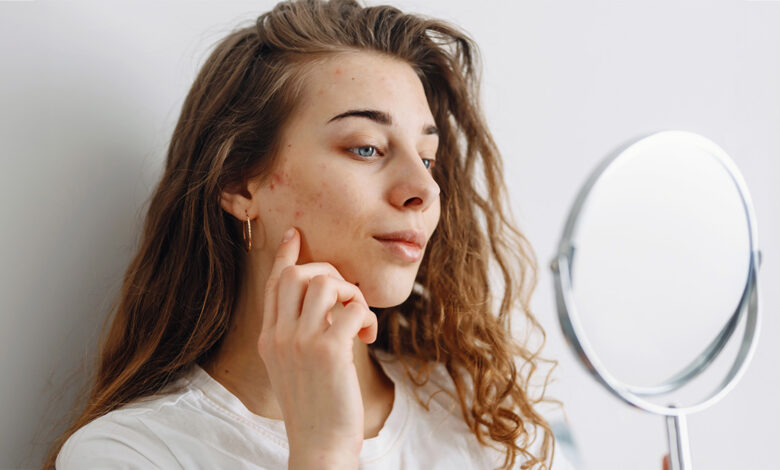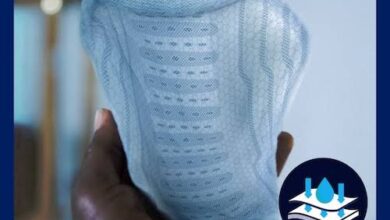Banishing Blemishes: Effective Strategies for Clearer Skin

Skin is often seen as a reflection of our health and well-being. Among the most common skin concerns are blemishes, which can affect people of all ages. Understanding and effectively managing blemishes is crucial for maintaining healthy, clear skin. This comprehensive guide delves into the world of blemishes, offering insight into their causes, prevention, and treatment.
Understanding Blemishes: More Than Just a Skin Deep Issue
Blemishes are not just superficial skin concerns; they are a manifestation of various underlying factors. Fundamentally, a blemish is any type of mark, spot, discoloration, or flaw that appears on the skin. The most common types include acne, pigmentation spots, and scars. These can be caused by a multitude of factors ranging from hormonal changes, stress, genetics, to lifestyle choices and environmental triggers.
Hormonal Influence on Skin Health
Hormones play a significant role in the development of blemishes, particularly during puberty, menstruation, pregnancy, and menopause. Fluctuations in hormones like estrogen and testosterone can increase sebum production, leading to clogged pores and acne. Understanding this connection is crucial in addressing hormonal blemishes.
Environmental and Lifestyle Factors
External factors such as pollution, UV exposure, and harsh skincare products can exacerbate skin problems. Similarly, lifestyle aspects like diet, stress, and sleep patterns significantly impact skin health. High-glycemic foods, dairy products, and stress can trigger or worsen blemishes.
Preventative Measures: Building a Strong Foundation
Prevention is key in managing skin blemishes. Establishing a daily skincare routine tailored to your skin type is crucial. This should include gentle cleansing, moisturizing, and sun protection. Choosing non-comedogenic products is essential to prevent pore-clogging.
The Role of Diet and Hydration
A balanced diet rich in antioxidants, vitamins, and minerals can promote skin health. Foods high in omega-3 fatty acids, like salmon and flaxseeds, are beneficial. Additionally, staying hydrated is vital for maintaining the skin’s elasticity and health.
Stress Management and Sleep
Stress management techniques such as meditation, yoga, and regular exercise can positively impact skin health. Adequate sleep is also crucial, as it allows the skin to repair and regenerate.
Treatment Options: Tackling Blemishes Head-On
When prevention is not enough, several treatment options can help manage and reduce blemishes.
Over-the-Counter Solutions
For mild blemishes, over-the-counter products containing salicylic acid, benzoyl peroxide, or alpha-hydroxy acids can be effective. These ingredients help exfoliate the skin, unclog pores, and reduce inflammation.
Professional Treatments
For more severe cases, professional treatments like chemical peels, microdermabrasion, and laser therapy can be beneficial. These procedures should be performed by qualified professionals and tailored to individual skin needs.
The Role of Prescription Medications
In cases of severe acne or persistent blemishes, prescription medications like retinoids, antibiotics, or hormonal treatments may be necessary. Consulting with a dermatologist is crucial for these treatments.
Myths and Misconceptions: Separating Fact from Fiction
There are many myths surrounding the causes and treatments of blemishes. It’s essential to understand that blemishes are not always caused by poor hygiene or diet. Genetics play a significant role, and what works for one person may not work for another.
The Importance of Professional Guidance
Self-diagnosing and treating skin issues can sometimes lead to more harm than good. It’s important to seek professional advice, especially when dealing with persistent or severe blemishes.
Long-Term Management and Skin Care
Managing blemishes is an ongoing process. Even after blemishes have cleared, maintaining a consistent skincare routine, a healthy lifestyle, and regular check-ups with a dermatologist can prevent future issues.
Embracing a Holistic Approach
Effective management of blemishes often requires a holistic approach. This includes not only topical treatments and medications but also lifestyle modifications like stress management, diet changes, and adequate sleep.
Recognizing Different Types of Blemishes
Identifying the type of blemish you are dealing with is the first step towards effective treatment. Common blemishes include whiteheads and blackheads (non-inflammatory acne), papules and pustules (inflammatory acne), cysts, and nodules. Each type has distinct characteristics and requires a specific approach to treatment. For instance, blackheads and whiteheads often respond well to topical treatments, whereas cysts and nodules might need more intensive therapy like systemic medications. Understanding these differences is crucial for selecting the right treatment plan.
The Impact of Skincare Ingredients
The world of skincare ingredients is vast and sometimes overwhelming. Ingredients like hyaluronic acid, niacinamide, and tea tree oil have been found to be beneficial for blemish-prone skin. Hyaluronic acid provides hydration without clogging pores, niacinamide reduces inflammation and redness, and tea tree oil has natural antibacterial properties. On the other hand, certain ingredients like alcohols and fragrances might irritate sensitive skin and exacerbate blemishes. It’s important to be aware of these ingredients and choose skincare products wisely.
The Role of Genetics in Skin Health
Genetics play a pivotal role in skin health and the likelihood of developing blemishes. If your family has a history of acne or other skin issues, you might be more prone to experiencing them too. While you can’t change your genetics, understanding this predisposition can help you take proactive steps in your skincare routine and lifestyle choices. It also highlights the importance of personalized skincare and treatment, as what works for someone else might not be effective for you.
Holistic Lifestyle Changes for Better Skin
A holistic approach to skincare involves more than just topical treatments; it includes making lifestyle changes that benefit overall health, including skin health. Regular exercise, balanced nutrition, adequate hydration, and stress reduction can all positively affect skin appearance. For instance, stress can trigger hormone imbalances that lead to breakouts, while a diet high in processed foods and sugars can exacerbate skin issues. Incorporating holistic practices into your daily life can significantly impact the health and appearance of your skin.
The Psychological Impact of Skin Blemishes
It’s important to acknowledge the psychological impact of skin blemishes. Conditions like acne can lead to reduced self-esteem, anxiety, and in severe cases, depression. The societal pressure to have “perfect” skin can exacerbate these feelings. Recognizing this psychological aspect is crucial for a comprehensive approach to skin health. Seeking support from friends, family, or mental health professionals can be as important as treating the physical symptoms.
Navigating Through Home Remedies and DIY Skincare
The internet is replete with home remedies and DIY skincare solutions for blemishes. While some of these may offer temporary relief or minor benefits, it’s essential to approach them with caution. Ingredients like lemon juice and baking soda, often touted as cure-alls, can actually harm the skin due to their pH levels and abrasive nature. It’s always advisable to research thoroughly and consult a dermatologist before trying out home remedies, especially if you have sensitive or acne-prone skin.
Each of these sections contributes to a comprehensive understanding of how to effectively manage and treat blemishes, emphasizing the importance of a well-rounded and informed approach to skincare.
Conclusion: A Journey to Clearer Skin
Banishing blemishes is a journey that involves understanding the causes, taking preventative measures, exploring treatment options, and busting myths. With the right knowledge and approach, achieving and maintaining clearer, healthier skin is an attainable goal. Remember, every skin is unique, and what works for one person may not work for another. Patience and perseverance, along with professional guidance, are key to overcoming the challenge of blemishes and embracing your skin’s natural beauty.



